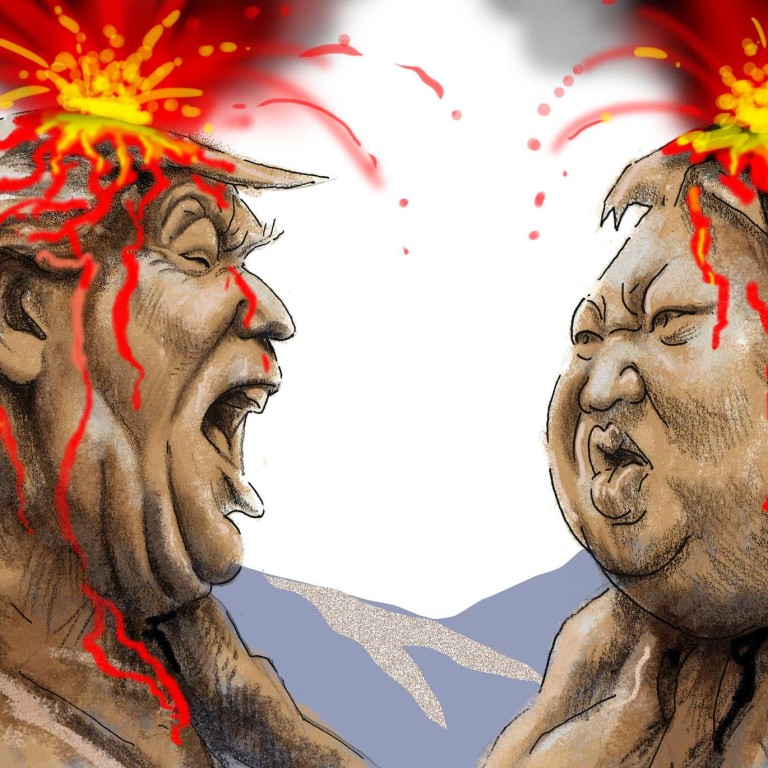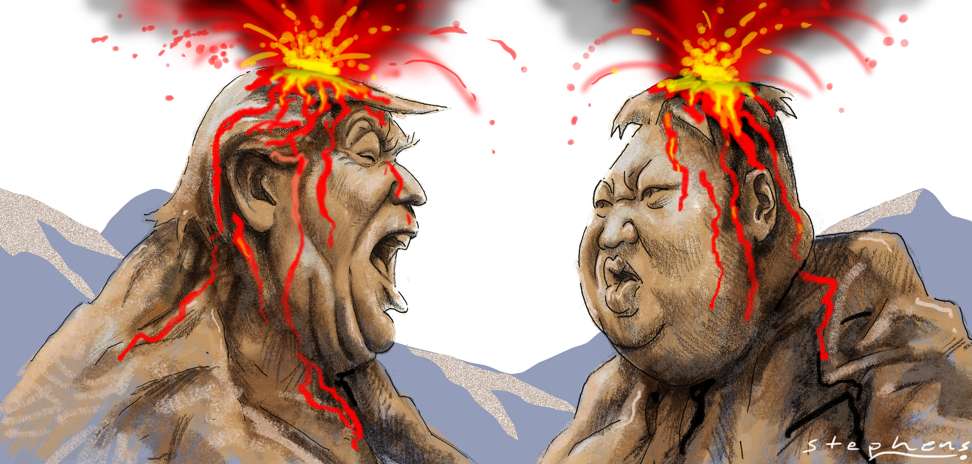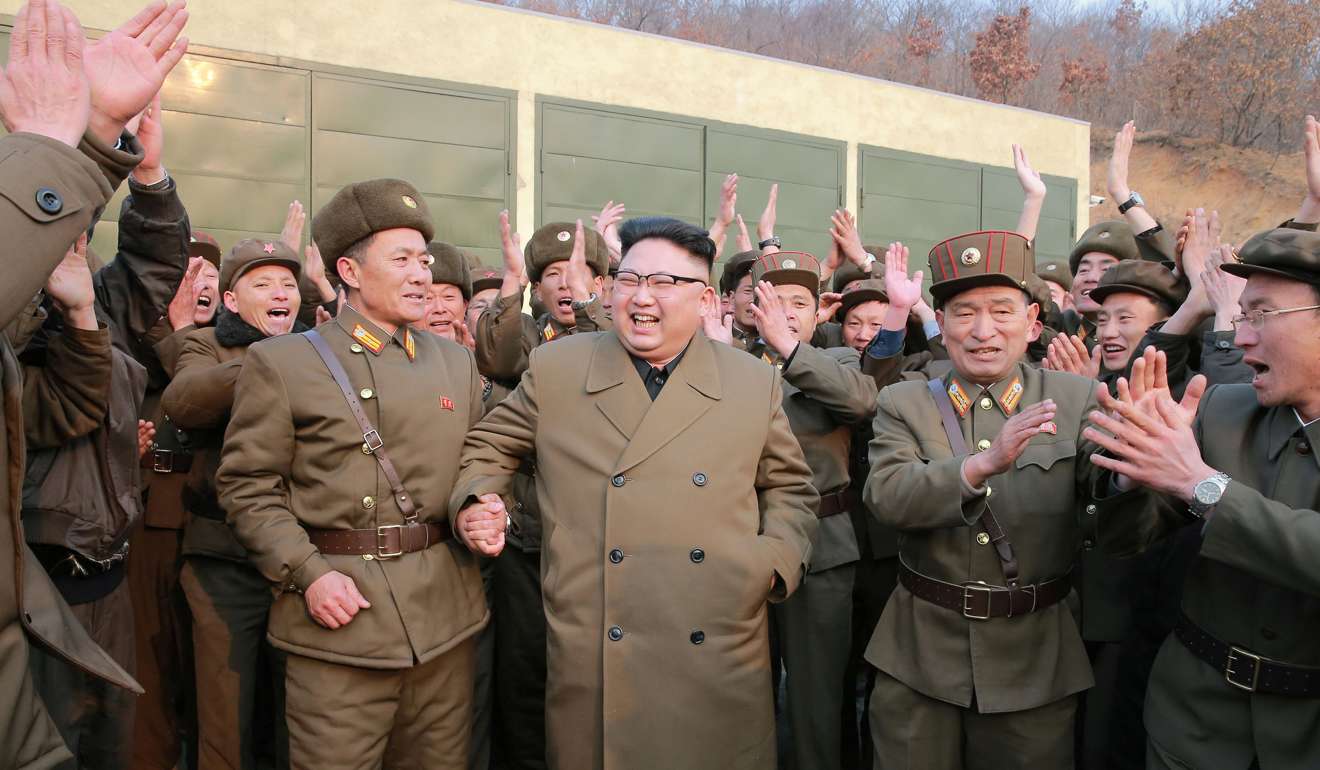
With an unstable Trump and Kim Jong-un, can China stop tensions erupting over North Korea?
Kevin Rafferty says it may be down to Beijing to display ‘coolheadedness’, as Pyongyang and the Trump White House have yet to show any intent to dial down the threats

But the advice was too late and addressed to the wrong person. The worsening situation requires more than cool heads to avert disaster.
US threat to strike North Korea is ‘aimed at Beijing’s ears’
But Trump himself cut some of the ground from under Tillerson by tweeting: “North Korea is behaving very badly. They have been ‘playing’ the United States for years. China has done little to help!”
For all Tillerson’s high-profile meetings, including with Prime Minister Shinzo Abe in Japan, US commentators are asking whether he is an empty suit in terms of policymaking under Trump.
It’s especially ironic since Tillerson seemed to be hinting that if North Korea did not behave, the military option would certainly be on the table. Indeed, the obvious options that have not been tried in trying to bring North Korea in from the cold are: military action to smash the nuclear facilities, or making friends with the Kim dynasty.
Watch: North Korea fires missiles into sea off Japan
Trump, unfortunately, is not listening to anyone’s advice, least of all to stay coolheaded. The president has spent much of his time tweeting and protesting on incidental issues.
In addition, Trump’s White House is torn by rivalry between the right-wing Republican mainstream and the darker view of his principal adviser Steve Bannon that wants to destroy the established world order.
Would Trump dare to try to take out Kim along with his weapons, a dangerous act of war?
Stanford professor Robert Reich, labour secretary under president Bill Clinton, is worried that Trump is becoming so distracted that he can’t do his job properly. He claims: “The Washington foreign policy establishment – both Republican and Democrat – is deeply worried about what’s happening to American foreign policy, and the worldwide perception of America being loony and rudderless. They think Trump is legitimising far-right movements around the world.”
All of Trump’s comments about North Korea suggest that unless sanctions can be stiffened and made to work in a way they have never worked anywhere before, Trump will be left with the awful military option, which would be deadly dangerous. The North’s weapons are deeply bunkered, widely dispersed in places the Americans do not know about, and based on homegrown technology – so that new ones would quickly be made to replace any destroyed. Would Trump dare to try to take out Kim along with his weapons, a dangerous act of war?
But if Wang wants to give his counsel where it matters, he should talk to an increasingly irresponsible Pyongyang. Kim has stepped up his quest for nuclear weapons that can reach the US. North Korea has conducted 20 missile launches and two nuclear tests in the past year, and five missile launches this month alone – all in defiance of the UN.
The real reason China won’t exert economic pressure on North Korea

How Kim Jong-un put US on a collision course with China
Beijing naturally prefers uncomfortable co-existence with Kim to regime change that would send refugees fleeing into China, and risk the creation of a united Korea backed by Washington at its doorstep. But Wang could also warn his own president that it is dangerous to get too close to an active volcano.
When will political leaders learn that the military option by any one nation threatens to destroy us all?
The problem is that even if China closed loopholes in sanctions on North Korea to make them more effective, they might not work and might enrage Kim. The impending tragedy is that Beijing and Tokyo, and Trump’s Washington, are pursuing increased military spending and calling it defence.
When will political leaders learn that the military option by any one nation threatens to destroy us all? Learning to live with each other is the only way, but that is far from the minds of Kim or Trump, dangerously volcanic blood brothers.
Kevin Rafferty, formerly the Asia editor of the Financial Times, has edited daily newspapers in four Asian countries

